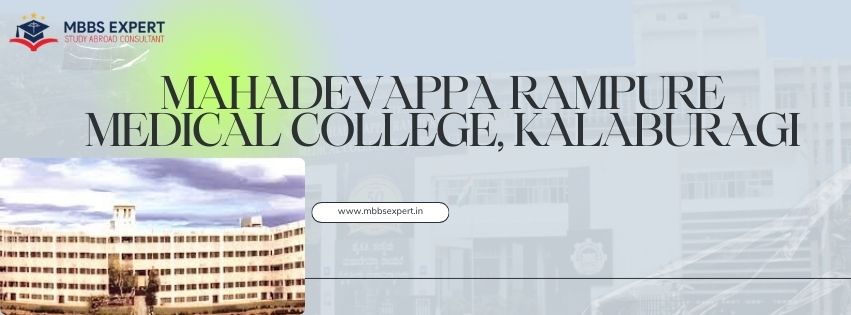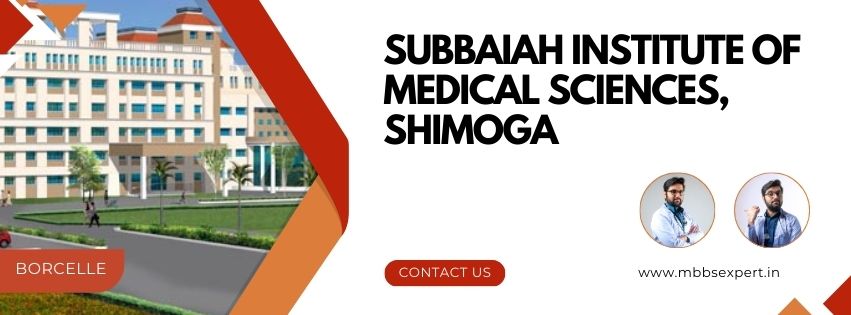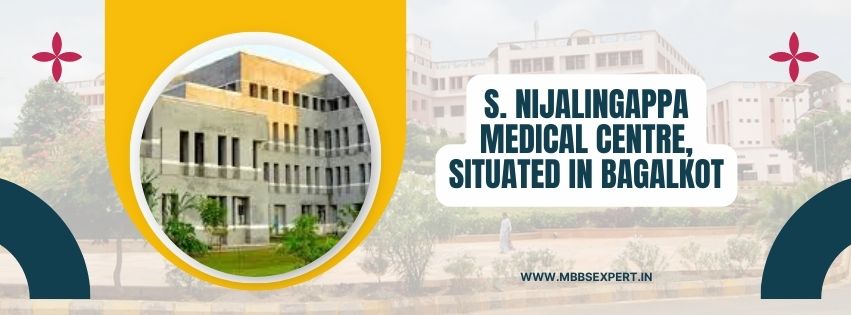![]()
Mahadevappa Rampure Medical College, Kalaburagi: A Premier Institution in Medical Education
 Introduction
Introduction
Mahadevappa Rampure Medical College (MRMC) in Kalaburagi, Karnataka, is a beacon of excellence in medical education and healthcare services. Established in 1963 by the Hyderabad Karnataka Education Society (HKES), the college has grown into a prestigious institution, known for its rigorous academic programs, cutting-edge research, and commitment to community health. This blog delves into the history, infrastructure, academic programs, faculty, and community impact of MRMC, highlighting its role in shaping the future of medical professionals.
History and Founding Principles
The founding of Mahadevappa Rampure Medical College is deeply rooted in the vision of its namesake, Mahadevappa Rampure, a prominent educationist and social reformer. Rampure’s dream was to create an institution that would provide high-quality medical education and healthcare services to the people of the Hyderabad-Karnataka region, an area historically underserved in terms of medical infrastructure. With the support of the HKES, MRMC was established, becoming the first private medical college in Karnataka.
The college started with a modest infrastructure but quickly gained recognition for its quality of education and commitment to producing competent medical professionals. Over the years, MRMC has expanded its facilities, introduced advanced medical technologies, and broadened its academic offerings, solidifying its reputation as a top-tier medical college in India.
Infrastructure and Facilities
MRMC boasts a sprawling campus equipped with state-of-the-art facilities designed to provide students with a comprehensive educational experience. The campus includes modern lecture halls, well-equipped laboratories, a vast library, and advanced research centers. The college also has a teaching hospital, Basaveshwar Teaching and General Hospital, which serves as a practical training ground for students while providing healthcare services to the local community.
Academic Facilities
- Lecture Halls: The college has several lecture halls fitted with audio-visual aids, providing an interactive learning environment. These halls are designed to accommodate large groups, ensuring that all students can participate in lectures and seminars.
- Laboratories: MRMC’s laboratories are equipped with the latest technology, allowing students to gain hands-on experience in various medical disciplines. From anatomy and physiology to biochemistry and microbiology, these labs are critical for practical learning.
- Library: The college library is a treasure trove of medical knowledge, housing thousands of books, journals, and digital resources. It is a vital resource for students and faculty, supporting both academic study and research activities.
Healthcare Facilities
- Basaveshwar Teaching and General Hospital: This hospital serves as the primary teaching hospital for MRMC students. It is equipped with advanced medical equipment and facilities, offering a wide range of healthcare services. The hospital provides invaluable practical experience for students, allowing them to apply their theoretical knowledge in real-world settings.
- Specialized Centers: The campus includes specialized centers for various medical disciplines, such as cardiology, neurology, and oncology. These centers provide specialized care and contribute to advanced research in their respective fields.
Academic Programs
MRMC offers a variety of undergraduate, postgraduate, and doctoral programs in medicine and allied health sciences. These programs are designed to provide comprehensive education and training, ensuring that graduates are well-prepared to meet the demands of the healthcare industry.
Undergraduate Programs
- MBBS: The Bachelor of Medicine, Bachelor of Surgery (MBBS) program is the flagship undergraduate program at MRMC. It spans five and a half years, including a one-year internship. The curriculum is designed to provide a solid foundation in medical sciences, clinical skills, and ethical practices.
Postgraduate Programs
- MD/MS: MRMC offers Doctor of Medicine (MD) and Master of Surgery (MS) programs in various specializations, including Internal Medicine, Pediatrics, Surgery, Obstetrics and Gynecology, and more. These programs are aimed at providing in-depth knowledge and expertise in specific medical fields.
- Diploma Courses: The college also offers diploma courses in several medical disciplines, providing additional specialization options for students.
Doctoral Programs
- PhD: MRMC encourages advanced research through its Doctor of Philosophy (PhD) programs in various medical and allied health sciences fields. These programs aim to develop researchers who can contribute to medical science through innovative research and discoveries.
Faculty and Research
MRMC’s faculty comprises highly qualified and experienced professionals dedicated to providing quality education and mentoring students. The faculty members are involved in various research projects, contributing to advancements in medical science and healthcare practices.
Research Initiatives
The college places a strong emphasis on research, encouraging both faculty and students to engage in research activities. MRMC has several research centers and laboratories where cutting-edge research is conducted in areas such as molecular biology, pharmacology, and clinical medicine. The college regularly organizes workshops, seminars, and conferences to promote research and knowledge exchange.
Community Engagement and Impact
One of MRMC’s core values is its commitment to serving the community. The college actively participates in various community health initiatives, providing medical care to underserved populations in the region. Through health camps, awareness programs, and outreach activities, MRMC strives to improve public health and promote wellness in the community.
Health Camps and Outreach Programs
- Rural Health Camps: MRMC organizes regular health camps in rural areas, offering free medical check-ups, treatments, and health education to the local population. These camps are instrumental in addressing the healthcare needs of people who have limited access to medical facilities.
- Awareness Programs: The college conducts awareness programs on various health issues, such as infectious diseases, maternal and child health, and lifestyle diseases. These programs aim to educate the community and promote healthy living practices.
Conclusion
Mahadevappa Rampure Medical College, Kalaburagi, stands as a testament to the vision of its founders and the dedication of its faculty and students. With its state-of-the-art facilities, comprehensive academic programs, and strong commitment to community service, MRMC continues to play a pivotal role in shaping the future of medical education and healthcare in India. As the college moves forward, it remains steadfast in its mission to produce skilled and compassionate medical professionals who will make significant contributions to the health and well-being of society.




